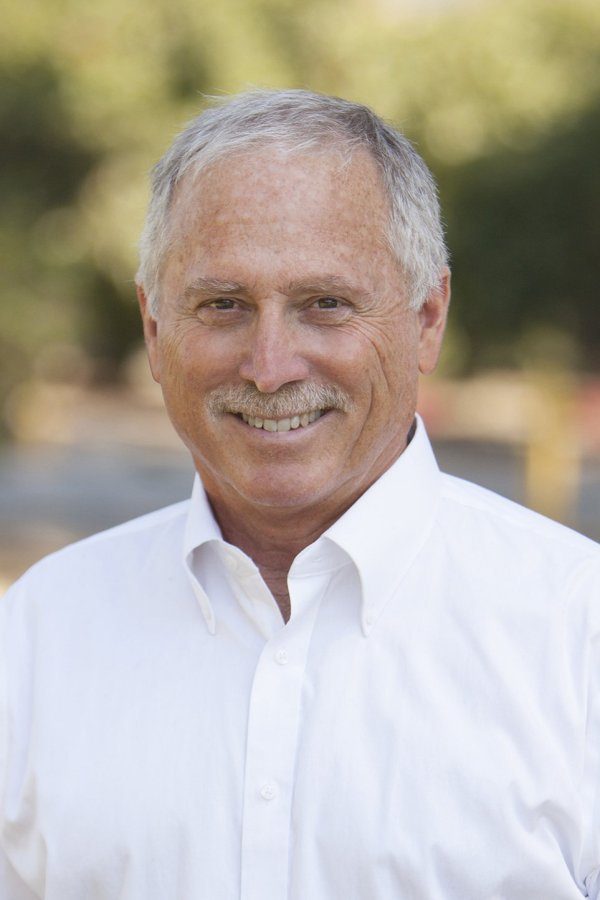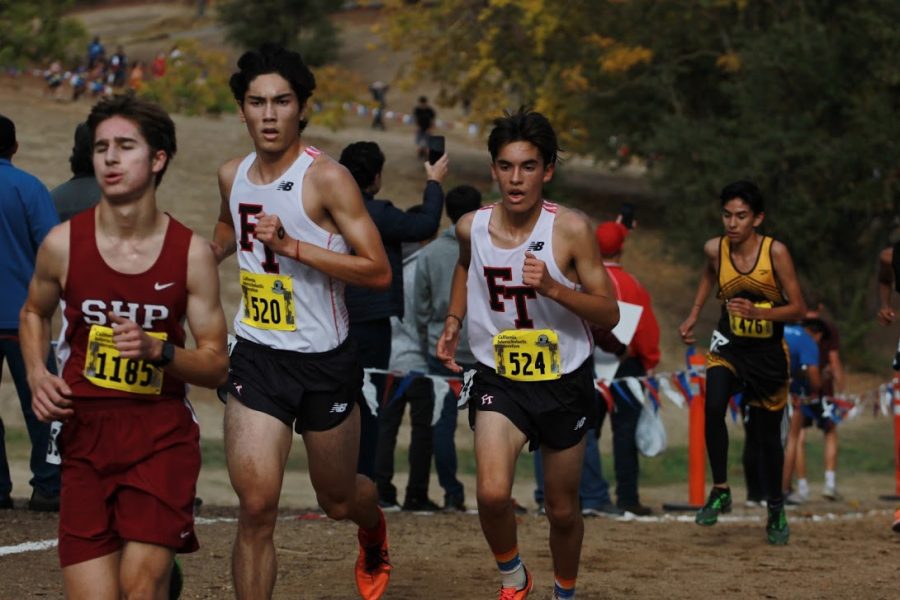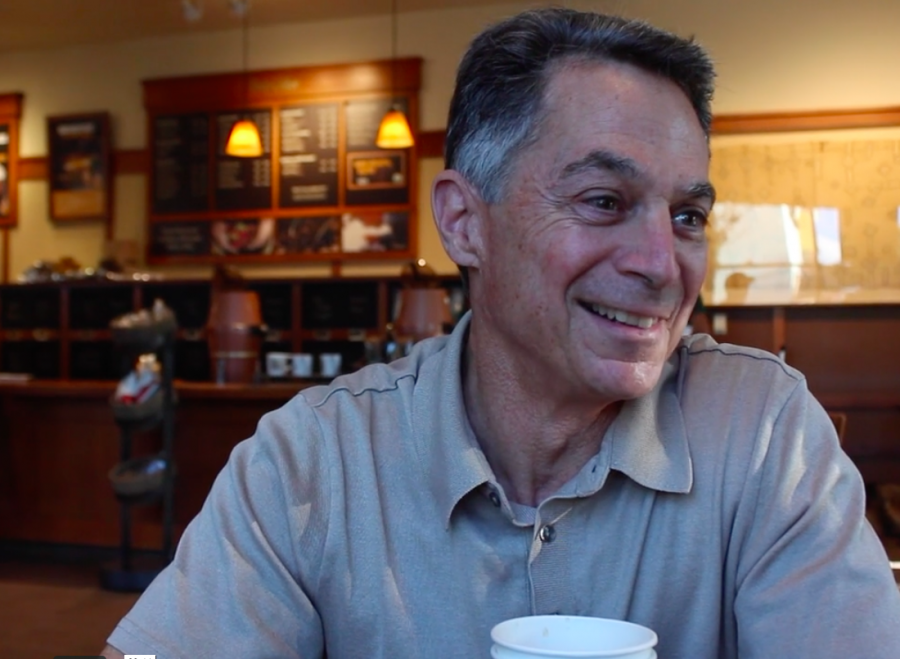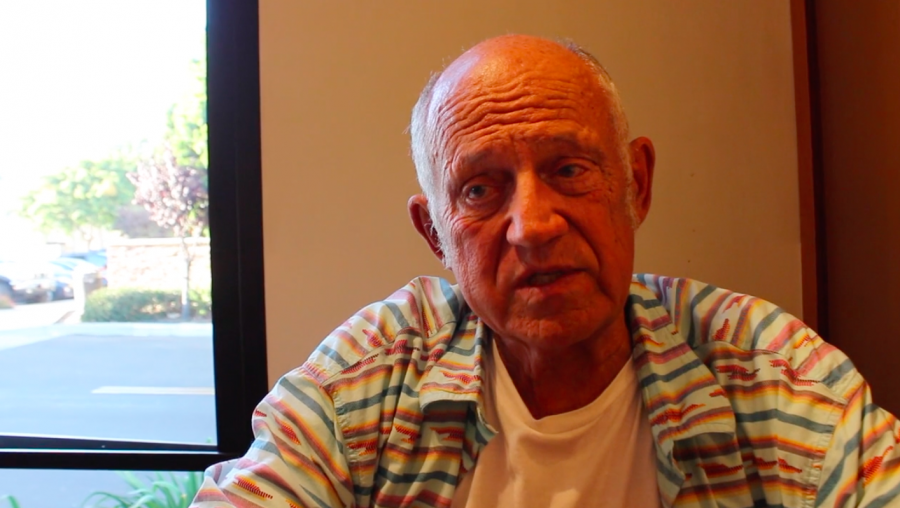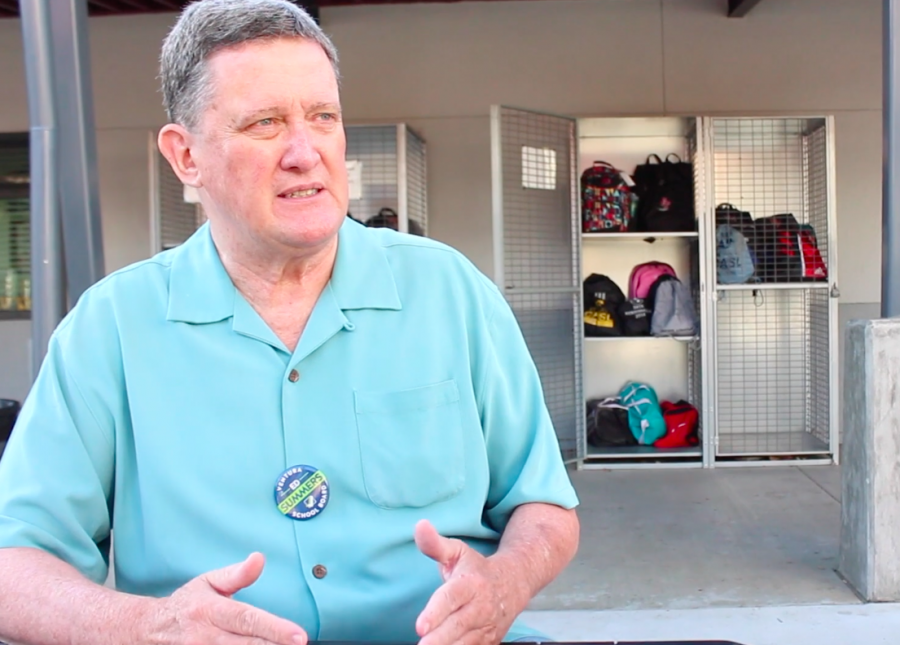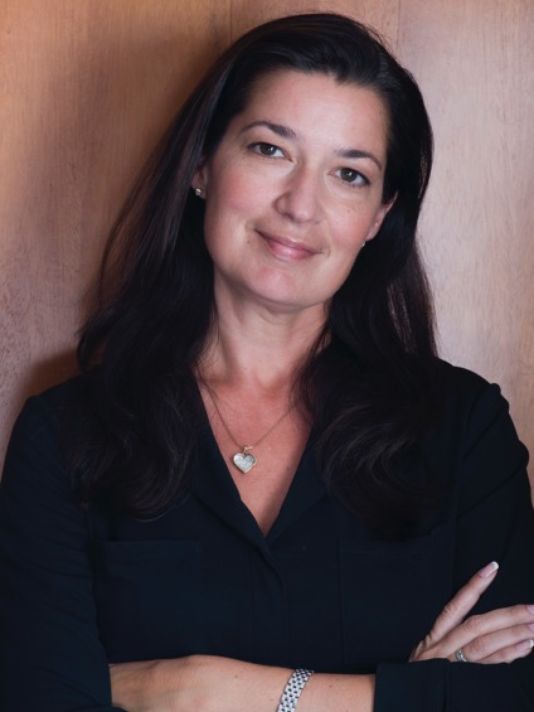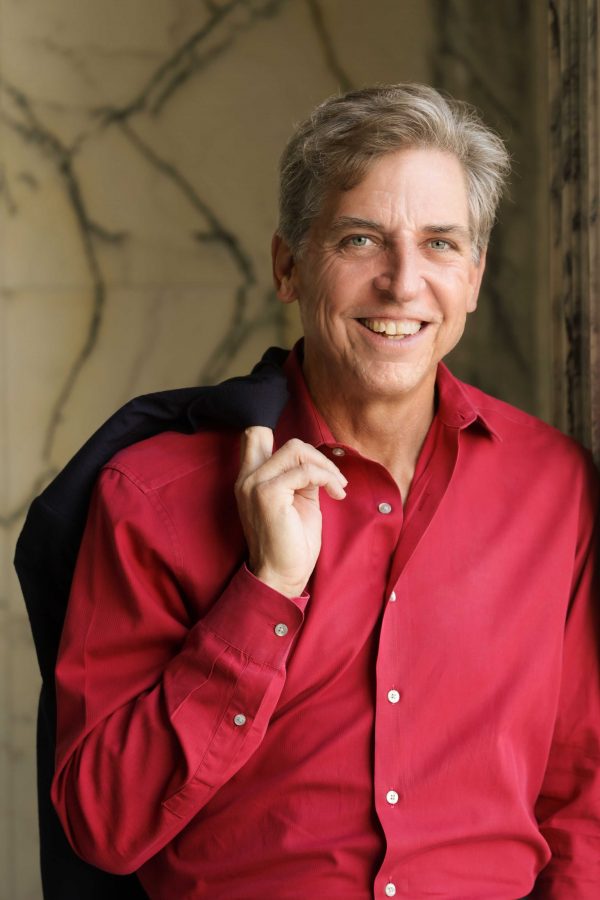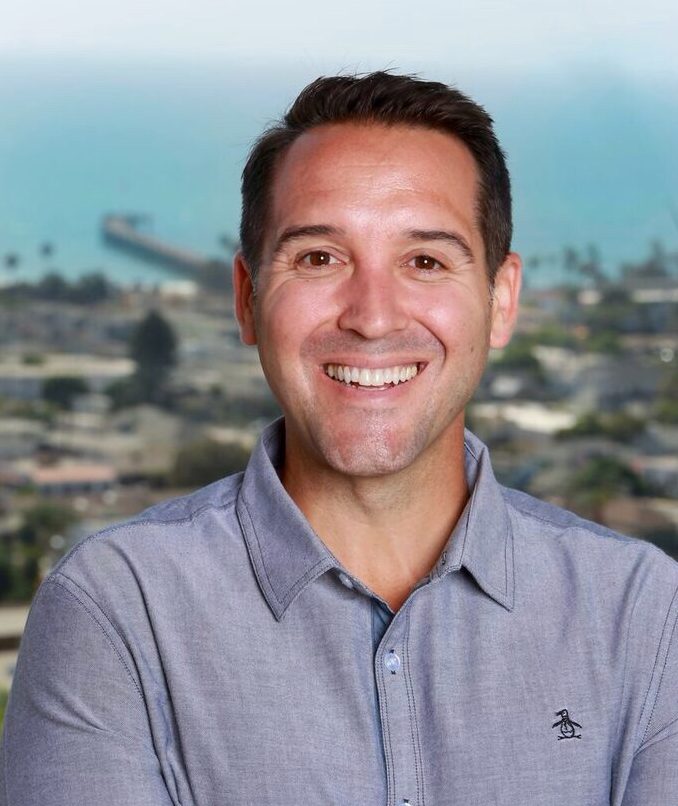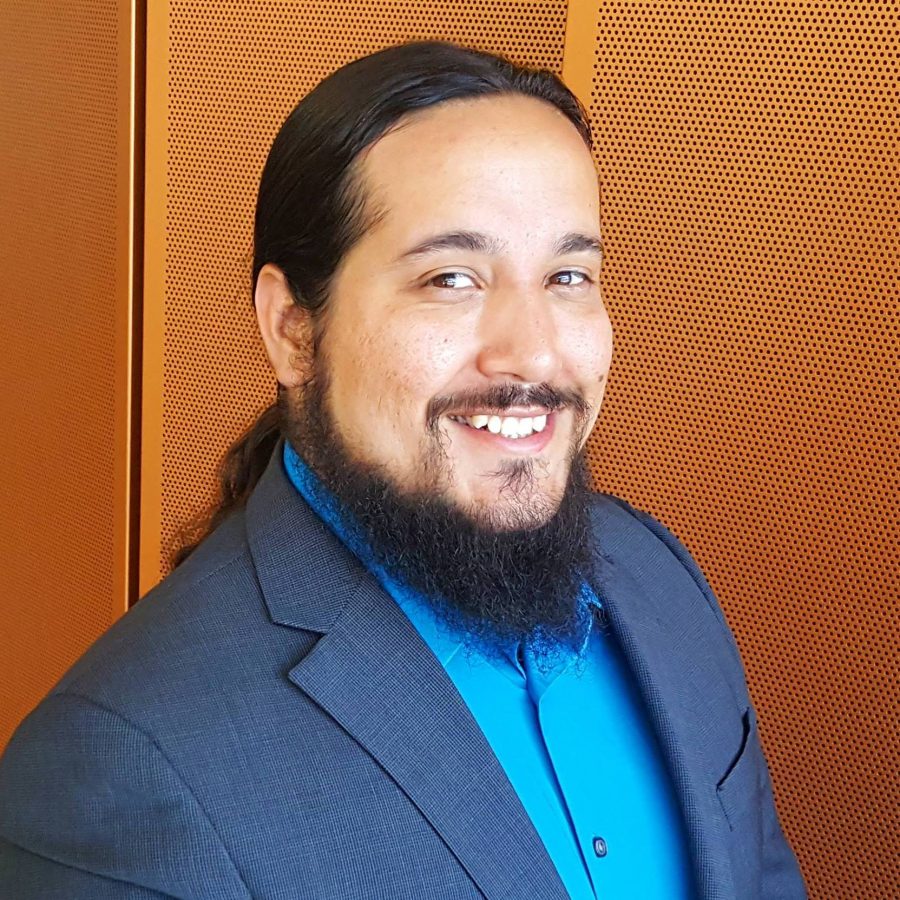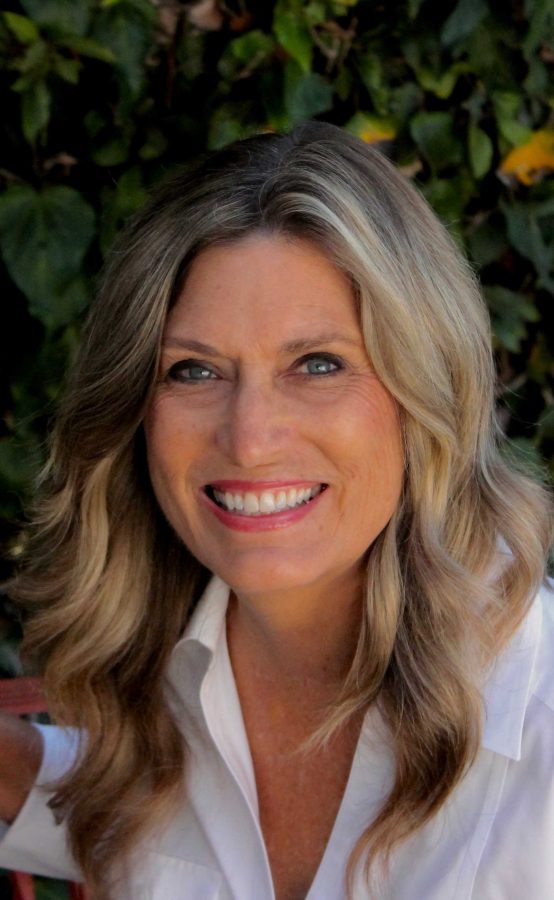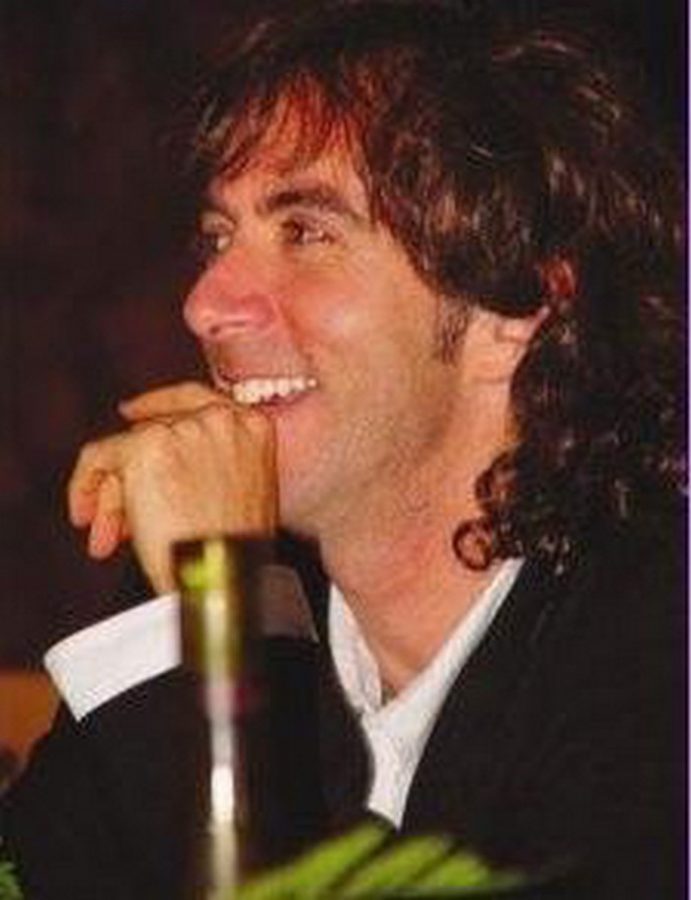INTERVIEWER: What’s your background as a Venturan?
DAVE GRAU: Hi, I’m Dave Grau, running for Ventura City Council. I’ve been a lifelong resident here in Ventura, about the only time I ever left was when I served in the United States Air Force during the Vietnam war. I came back and got my degree in accounting.
I worked at three different companies here in Ventura County as controller; I worked in Aerospace Manufacturing, agriculture and I finished my career, I was vice president and general manager at Dole fresh vegetables. So now I’m retired, I do a lot of volunteer work around here but I thought it be a good time to run for City Council, and mainly bring some common sense to government.
Which measure on the ballot are you most passionate about and why should students and their families also support it?
GRAU: There’s a lot of measures on the ballot. Now, you’re just talking about local measures right?
Yes
GRAU: Well there’s three tax measures on the ballot and the one I’m probably most passionate about it’s called Measure O, and that is a sales tax increase for residents here in Ventura, the city of Ventura. There’s also a countywide transportation tax and a parcel tax, so those are three different taxes.
But I’m most passionate on Measure O, and I would recommend the no vote on it, we don’t need it. I am an accountant, I’ve been able to take a look at the books that the city. Usually when a city or local government says if they need more money it’s because they’re getting more expenses than revenue. In this case, the city actually more revenue than expenses.
The problem is that our elected officials aren’t telling us that, so it’s much easier to pass a tax increase. I am completely against it I think that if we don’t pass it we can still keep all our fire stations open, we can hire additional police officers, we can pave the roads, we can do all the important things. I think at this time the worst thing you could do is ask our residents to take a pay cut, basically.
Two measures it seems Foothill families care about are Measure R and the measure extending the SOAR initiative. Do you support either, both, or neither of these measures? Why?
GRAU: Which one is R?
Measure R is about increasing the tax to add a little more funding to the schools.
GRAU: Okay, that’s the parcel tax. First question I guess is the Measure R, I’m not a fan of that and this is why. Because when Measure R was originally passed a few years ago, the proponents of that plan says we want to raise taxes for this amount of time and this is what we’re going to do with the money.
Now they want to just say well let’s just extend it, and I don’t think that’s appropriate. You know, I supported the original tax because it had a specific purpose and it’s specific time frame, but then to turn around and basically move the goalposts and say well we’re just going to keep the tax going, I think that’s wrong. So, I don’t support that. And the other one was…
The SOAR initiative.
GRAU: Now there’s a lot of different SOARs out there, and so I assume what you’re talking about is the city one.
Yes. The one with the voting before building on the farm land.
GRAU: It’s a very complicated issue. Sadly I think most people really don’t understand it. You know I’ve knocked on a lot of doors and there is a lot of confusion about it. There’s no alternative to it; it’s either a yes or no, either you like it or you don’t like it. But I support it, I support SOAR. Now there is also county SOARs, there’s two of them on the ballot, but your question is just to the city SOAR. But I support the city’s SOAR.
How do you plan to strengthen the partnership between the school district and the city, and involve more students in local government?
GRAU: That is a problem, and you can see I’m not the youngest here. And that’s that. This is the second time I’ve run for office, the first time was just a few months ago I ran for County Supervisor, came in second, there were only two of us.
But as part of that process I knocked on a lot of doors. Actually, I knocked on 3,700 doors, and the doors we knocked on were people that were likely voters, and out of that 3,700 doors I would guess that there were 10 that were under 30. That means the younger folks, as passionate as they are, they are not voting. And I’m not sure what you could do about that and if you’re not voting, you’re not running for office where you can really make a change.
You know I think it would be great to get some younger folks involved here, but it’s very difficult to do. So, I think you have that passion to, maybe right out of school, you register to vote, you vote a few times and then your family comes and when you do all this other stuff, you kind of back away and leave it to the older folks. And I would certainly love to see more young people vote. But how you’re going to do that, I’m not sure. You guys just need to start voting.
What about high school students? How do you plan to involve them in local government?
GRAU: High school students that are under the voting age?
Just straightening the partnership between the school district and the City, any plans to just involve the students that can’t vote?
GRAU: No. Politicians just love to make something up, but I’m not going to make something up. I’m a member of the American Legion and one of the things we do is we work with the local high schools and we get them involved in government by sending them to, which I mentioned earlier, a thing called boys state and girls state.
But we send young people to, they’re always juniors, from all over the state to Sacramento, to learn more about government. The people that come back are just so enthusiastic about it, but it’s such a small thing we’re doing and that’s not really being replicated anywhere else.
What do you think is the most pressing issue facing our city today and how can it be addressed?
GRAU: The most pressing issue is, well we’ve got a lot of issues. Water is certainly one, and it can be solved. And, right now, the elected officials, here we are like five years into a drought, and all of a sudden the elected officials of the city all go ‘oh we might need to look at additional sources of water.’
Their entire focus has been on controlling demand, ignoring supply. And one of the issues I’ve raised is that most of the county gets their water from the state; the northern California, from the snowpack, essentially. And the City of Ventura and the City of Ojai are the only two cities in the county that don’t get one drop of water from the State of California.
Thousand Oaks gets one hundred percent of their water from up north. Yet, our City Council, every year, writes the check to the State of California for two million dollars for the right to that water and we don’t receive one drop. And I think it’s time somebody really looked at that and ask why we’re spending two million bucks on something we aren’t getting.
So you don’t know why we aren’t getting it?
Yeah there’s no political will. Absolutely. It’s not a huge project either, it’s not like building the Suez Canal. The pipeline that we are talking about to bring in this water is exactly 7 miles from where we sit. 7 miles. It would cost 25 million dollars to bring a water pipe line, and it will do two things. It’ll increase the supply of water we have, that is already coming down from upstate. And during dry years we can use that water to recharge Lake Casitas, which is half empty right now. That is significant.
We don’t really have a water problem, we have a water storage problem. And if we’re not taking advantage of these situations when we are in a drought and recharging that aquifer, that’s really short sided of our officials. And this wasn’t an issue until I started bringing it up, now all the people running for office are talking about state water but if you look at my web page I’m the only person who had it there I’m the only person talking about it and saying why; why are we doing this? So that’s one of the most important things. I don’t want to keep going on, but I could.
You can if you’d like.
Another issue is job creation, and this is serious one. And not only the City of Ventura but the entire County of Ventura. We are not creating jobs, we are not creating jobs like Santa Barbara is, like LA County is, in fact we’ve got the, and I’m talking about Ventura County and by extension the City of Ventura we are actually worse, the County of Ventura has the lowest job creation rate in the entire state. We are dead last.
So what happens is, you go to school, you’re probably end up going to college somewhere, you probably are not going to come back, sadly because we are not creating the jobs that you’re going to be trained to do. And when you do that for long enough, all of a sudden we’ve lost the talent. And the one thing we’re dependent on in the city, is a talented young folks coming up looking for high paying jobs, that we’re not creating.
So also in the County of Ventura, we are the only County that, if you look at a chart, a bell curve, the distribution of the population. Let’s say one third of it is the young folks, like yourselves too young to work a real job, then the middle group, 19 – 54 year olds, the working group, and then over that. The bottom two tails of that group are growing in the County of Ventura, kind of normal like we would expect, just like the rest of the state.
But we are the only County where that middle section is shrinking, we are losing the most valuable resource we have, which is young people looking for a career. Why? Because they are not creating jobs here. I think that needs to be addressed, because that is, you can get into a death spiral. You’re going to have just a lot of old people, depending upon services, and no young people working. I think a lot of people would like to grow up here, and you know, have families and retire. But that’s not happening in Ventura County, so we need to address that problem.
Our City Council representatives should embody the values closest to our hearts, because these values will guide their decisions in office; they should also act as leaders not only on Monday nights in City Hall but throughout their term in their interactions with the community. What values do you embody, and how do you act as a role model for the youth of Ventura?
GRAU: I think that’s really what a politician does, he’s kind of like the actor on stage and he gets his lines from the public. And I think what happens a lot of the times, particularly when it politician has been in too long, but they stop listening. And the actor then becomes his own director and screenwriter.
And so I think, first of all term limits are incredibly important, you know you get career politicians out there, they completely lose sight of why they are there. So term limits are big. And I think listening to everybody, and like I said my big concern is the fact that we’re not creating jobs that are going to allow young folks to stay here.
And to get young folks involved in government, I mean look I’m old, and I’m just now getting into it, partly out of frustration, because if I didn’t do it I didn’t see any other people stepping up. But I do need to get out there, we do need to get out there and encourage that because you just don’t want, no matter how young or old you are, you end up with the values that you gain over your lifetime. So I probably have completely different values and you.
And if you look at a government body, look at City Council, you’ve got seven people up there and if the average age is 60, are they going to have the correct values, or the values that reflect what you want. And I think the answer is no. So I think we need to really, and goes back to your earlier question about encouraging young people, but how you do that I think it’s an individual, the person has to have passion for it and it is a sacrifice. I mean these jobs don’t pay any money at all, 600 bucks a month, so I’m not doing it for the money.
I think that’s what scares a lot of people away, because you’re raising your family, you’re going to school, you just don’t have time for it. So I realized the effect of having young people not participating in this and I get that feedback when I’m in American Legion, you know we send the kids to boys state and girls state, which I talk about a lot. I mean they just come back all pumped about government. And I would like to be able expand something like that, I mean it takes money, but I’d love to do it.
So, it’s a tough question, but in democracy we’ve got to get some more participation. You can’t rely on guys that have been in office for ever and just turning out and just losing the connection between the public.
Is there anything else you’d like to add that I didn’t ask?
GRAU: Yeah. I think one of the greatest perils we have, and any kind of government, is a lack of transparency. Things happen behind closed doors, secret negotiations, that you don’t know about until you read about it in the local paper, and everybody goes ‘oh my gosh how did that happen?’ whether it’s Brooks, you know that disaster at Brooks or other things that happened. And that’s, I think, a fundamental problem we have here.
Because it’s so much easier to make a decision in secret then it is to sit in front of everybody and say this is our thought process because there’s usually going to be pushed back, but we need that push back. So one of the things I’m really going to be focusing on is that transparency. I think it’s our money, they’re making decisions for us that affect our lives. And without that transparency, I think we all lose in the end.


